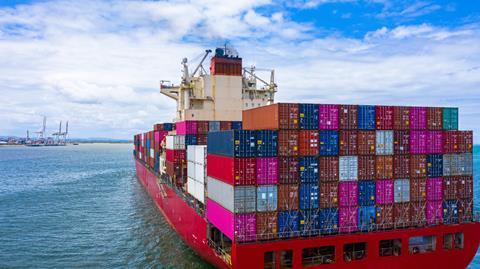Global marine hull premium was up 3.5% in 2024, reaching $9.67bn, but the insurance market is soft and subject to heightened risks and claims pressures

At the International Union of Marine Insurance (IUMI) conference in Singapore, Ilias Tsakiris, chair of the IUMI’s ocean hull committee, explained that the hull market is returning to a “soft environment”.
While the overall premium base continues to rise, the underlying risk environment is intensifying, driven by an ageing fleet, more severe losses, geopolitical shocks and the operational complexity of the energy transition.
The committee reported that in 2024 global hull premium increased by about 3.5%, reaching $9.67bn, with Europe accounting for about 53%, Asia-Pacific 35%, and other regions 12%.
This concentrated picture meant that there was “intense competition” in the key regions and “significant vulnerability” in the event of a major loss in a key premium centre, Tsakiris said.
The global fleet increased by 4% in value, reaching an estimated $1.54trn. This, and a robust sale and purchase market, indicated positive economic sentiment but “significantly increased exposure”, according to Tsakiris.
Increased capacity has kept underwriting conditions challenging, with growth in some cases prioritised over technical discipline.
Claims challenge
Loss severity remains above pre-COVID levels, led by machinery failures, event attendees in Singapore heard.
Fires and explosions remain relatively few but costly; collision/contact/grounding frequencies have edged up. Heavy-weather claims have spiked, linked to Red Sea rerouting, a reminder that geopolitics now directly shapes technical outcomes.
“Although in headline numbers, losses have not surged, loss ratios remain under pressure because of higher costs, more expensive incidents and an ageing fleet that is harder to repair”, said Tsakiris.
The average world-fleet age is 22.6 years of age with 35% of ships more than 25 years and 61% more than 15 years.
Meanwhile, the order book for replacement vessels is a modest 16% of the existing fleet and scrapping sits at multi-year lows. In 2024, 52% of all incidents involved ≥20-year vessels, 41% were ≥25-years.
Older ships are often uneconomical to repair, which leads to constructive total losses or even unrepaired damage claims. The ageing fleet is “a quiet but powerful driver of claims,” said Tsakiris.
Energy transition risks
The transition is underway, but it also adds to the industry’s real exposure. In 2024, 3,466 newbuilding orders were placed, of which approximately 25% were designed to run on alternative fuels.
In 2025, there have been 763 orders to date, of which 31% are alternative-fuel capable. It is a similar story with deliveries –12.8% of ships delivered in 2024 had alternative-fuel capability and for this year it is projected that 15.4% of about 1,400 deliveries will be designed for alternative fuels.
“Novel fuels like methanol, ammonia and hydrogen introduce completely new hazard profiles,” commented Tsakiris.
“We will be insuring more complex machinery with less repair history and yet the replacement effect is limited, so the average age of the world fleet will continue to rise even as new ships arrive. The energy transition is not just a green story – it is a risk story,” he said.
War, sanctions and compliance
Geopolitical shocks such as the Ukraine–Russia war and the Red Sea security picture continue to shape the marine insurance market.
Rerouting via the Cape adds time, cost, and heavy-weather exposure for shipowners and for underwriters: engine failures, weather damage, and higher salvage costs linked directly to the detours.
At the same time sanctions were influencing the tanker market in particular, contributing to a shadow fleet representing about 17% of the global fleet.
Compliance checks add cost, time and effort. “War premiums are higher but accumulation of risk is harder to control, and the human toll — with detentions, kidnappings, and crew abandonments — continues to rise,” said Tsakiris.
New IUMI Hull Masterclass
Tsakiris also highlighted the new IUMI Hull Masterclass which has been developed to equip practitioners with deeper skills, reinforce market resilience and help to restore long-term sustainability to the sector.
The Masterclass, starting in October, will span the technical essentials, underwriting practice, wordings and clauses; and include live casualty workshops. More information is available from www.iumi.com










No comments yet